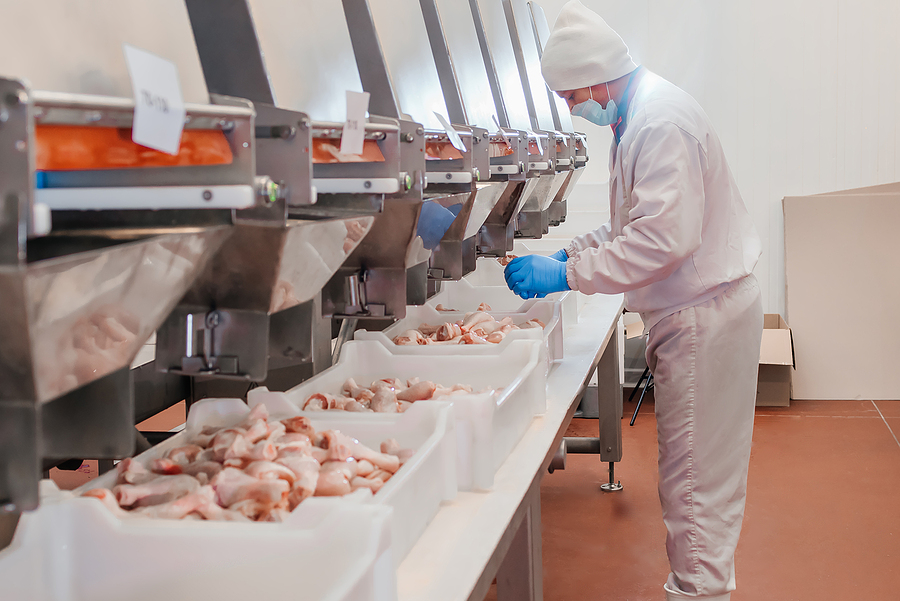Introduction
In today's quickly advancing food industry, companies are looking for sustainable remedies to meet the growing need for quality food products while decreasing their ecological influence. Contract food manufacturing has actually emerged as a viable choice for business wanting to outsource their manufacturing requires while preserving control over product advancement and quality assurance. This post explores the principle of contract food manufacturing in Australia and also its duty in advertising sustainability within the food industry.

The Increase of Contract Food Manufacturing in Australia
Understanding Contract Food Manufacturing
Contract food production is a critical collaboration between a brand name owner as well as an agreement producer, where the last creates products in contract manufacturing behalf of the previous. This setup allows brand name owners to focus on marketing, item advancement, as well as circulation while leveraging the competence and also resources of specialized contract manufacturers.
Benefits of Agreement Food Manufacturing
Cost Performance: Contract food manufacturing eliminates the requirement for considerable capital investments in facilities, devices, and workforce. This cost-saving step enables brand names to allocate their sources towards various other important locations of organization growth. Scalability: As need for a certain item varies, contract suppliers can rapidly readjust production levels to suit market needs. This versatility makes sure that brand names can satisfy customer demand without excess stock or wastage. Expertise and also Technology: Agreement manufacturers commonly have comprehensive knowledge as well as experience in certain food categories or processes. By working together with these specialists, brands can use their imagination as well as harness ingenious solutions for product advancement and improvement. Quality Assurance: With stringent quality assurance measures in place, agreement producers stick to industry requirements and regulatory requirements. This commitment to quality ensures that brand names deliver safe as well as top notch products to customers consistently. Supply Chain Monitoring: Contract food manufacturing streamlines the supply chain by settling production, product packaging, labeling, as well as circulation under one roofing. This incorporated technique lessens logistical complexities as well as improves total functional efficiency.The Environmental Influence of Contract Food Manufacturing
Reducing Carbon Footprint
Contract food production provides opportunities to reduce the ecological influence of food manufacturing through numerous methods:
Efficient Source Usage: Contract manufacturers enhance resource usage by executing energy-saving practices, reducing water usage, and also minimizing waste generation. These lasting steps contribute to a lower carbon footprint throughout the entire manufacturing process. Locally Sourced Components: By sourcing active ingredients from regional vendors, contract suppliers minimize transportation distances and also linked discharges. This technique supports local economic climates while advertising sustainability within the supply chain. Eco-Friendly Product packaging: Agreement food manufacturers stress the use of environmentally friendly product packaging products, such as biodegradable or recyclable alternatives. This dedication to sustainable product packaging minimizes waste as well as promotes liable consumption.Embracing Eco-friendly Energy
Contract food producing centers in Australia are significantly embracing renewable energy sources to power their operations. Solar panels, wind turbines, and other clean energy services help reduce dependence on fossil fuels and also add to a greener future for the industry.
Addressing Sustainability Challenges in Contract Food Manufacturing
Waste Management and also Reusing Initiatives
Contract food producers focus on waste management through thorough recycling programs as well as waste decrease techniques. By executing reliable waste partition systems, companies can divert significant amounts of waste from landfills as well as advertise a circular economy.
Water Conservation Measures
Water shortage is an international problem, and also contract food suppliers play their component in resolving this challenge. Business invest in water-saving modern technologies, such as advanced purification systems and also water reuse campaigns, to reduce their freshwater consumption.

Collaboration with Lasting Suppliers
Contract food suppliers actively seek collaborations with suppliers dedicated to lasting practices. By focusing on environmentally mindful providers, these firms ensure that their whole supply chain straightens with sustainability goals.
FAQs
What is contract food manufacturing? Contract food manufacturing describes the outsourcing of food production to specialized manufacturers that create products in support of brand owners.
How can contract food manufacturing benefit businesses? Contract food manufacturing offers cost effectiveness, scalability, competence, and also quality control to brand names aiming to focus on marketing and distribution.
How does contract food manufacturing promote sustainability? By enhancing resource use, embracing renewable energy, as well as applying waste monitoring and also reusing initiatives, contract food manufacturing lowers its ecological impact.
What are some sustainable packaging choices in contract food manufacturing? Environmentally friendly product packaging products such as biodegradable or recyclable options are typically used in contract food manufacturing to lower waste.
How do agreement food manufacturers save water? Agreement food manufacturers purchase water-saving innovations and also apply water reuse campaigns to lessen their freshwater consumption.
What function does cooperation with lasting suppliers play in contract food manufacturing? By partnering with eco aware providers, contract food producers ensure that their entire supply chain aligns with sustainability goals.

Conclusion
Contract food manufacturing presents a sustainable remedy for services looking for to meet the growing need for top quality food products while reducing their ecological influence. By leveraging the proficiency of specialized makers and also adopting eco-friendly techniques, brand names can contribute to a greener future for the Australian food sector. Embracing sustainability not just profits the environment however also improves brand credibility and also consumer count on a significantly aware market.